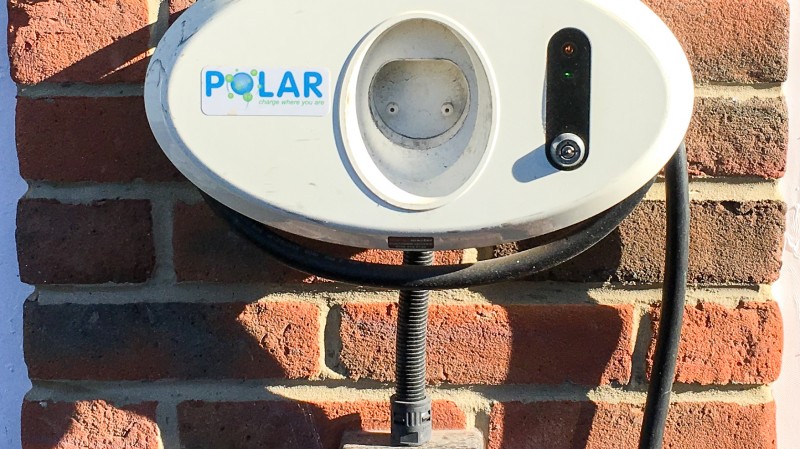You are here: New homes to be built with electric car charging points
Transport chiefs unveil plans to make it easier to recharge electric cars
New homes in England will have to be built with electric car charging points under government plans to tackle pollution and climate change.
Building regulations could soon be updated to require developers to install charge points so that new-build homes are “electric-vehicle ready.”
New street lighting columns will also include charge points where there is on-street parking.
The proposals, announced by Transport Minister Chris Grayling in July 2018, aim to make it easier to charge an electric car than to refuel petrol or disesel vehicles. The transport chief believes the lack of electric vehicle (EV) charging points is the main obstacle standing in the way of an “electric car revolution”.
In a bid to encourage more councils, businesses and offices to install EV hubs, there are plans for a £400m Charging Infrastructure Fund.
Currently only 5.5% of new cars sold in the first six months of the year are hybrids (operating with petrol and a battery) and pure electrics – compared with 4.2% during the same period in 2017.

Government’s Road to Zero Strategy
The measures, set out in a “Road to Zero Strategy,” are aimed at “enabling a massive roll-out of infrastructure to support the electric vehicle revolution.” Transport chiefs have billed it as “the biggest technology advancement to hit UK roads since the invention of the combustion engine.”
Government intends to ban the sale of new conventional petrol and diesel cars and vans by 2040. The DoT has set an interim target for ultra-low emission car sales of 30-70% by 2030 ahead of the ban on diesel and petrol cars and vans in 22 years.
The strategy, published by the Department of Transport, states: “ensuring the houses we build in the coming years are electric vehicle ready, it is our intention that all new homes, where appropriate, should have a charge point available.
“We plan to consult as soon as possible on introducing a requirement for charge point infrastructure for new dwellings in England where appropriate.”
Ministers overall aim is to reduce the UK’s greenhouse gas emissions by at least 80% of 1990 levels by 2050.
Whitehall says it will put the UK at the forefront of a global revolution in motoring and help to deliver cleaner air, a better environment and a strong, clean economy. Air pollution contributes to an estimated 40,000 early deaths a year and toxic roadside fumes are a major cause.
The plan has critics
Government has come under attack from environmental campaigners for failing to respond sooner to rising carbon emissions. Germany and France are among countries planning to ban petrol and diesel-powered vehicles by 2030 – a decade before the UK.
In a statement, Greenpeace said: “A 2040 target is already weak by international standards and should be a decade earlier to deliver any incentive to the car industry and made a dent in transport emissions.
“We need 100% ultra-low emission car and van sales by 2030, not the limp 30% minimum for cars offered by the government.”
Meanwhile, Edmund King, head of the AA motoring association, said the measures are a “step in the right direction” but the “electric revolution needs more than just at every home.”
He is calling for supermarkets and petrol stations to install charging points to “convince drivers that they won’t be left stranded at the roadside.”
The blueprint has also come under fire for only committing to making new cars “effectively zero emission” within the next 22 years, leaving the door open to some cars with limited exhaust emissions.
Ministers have said they see a role for hybrid cars. This follows lobbying from the car industry that a complete ban on combustion engine cars risks damaging a sector which supports more than 800,000